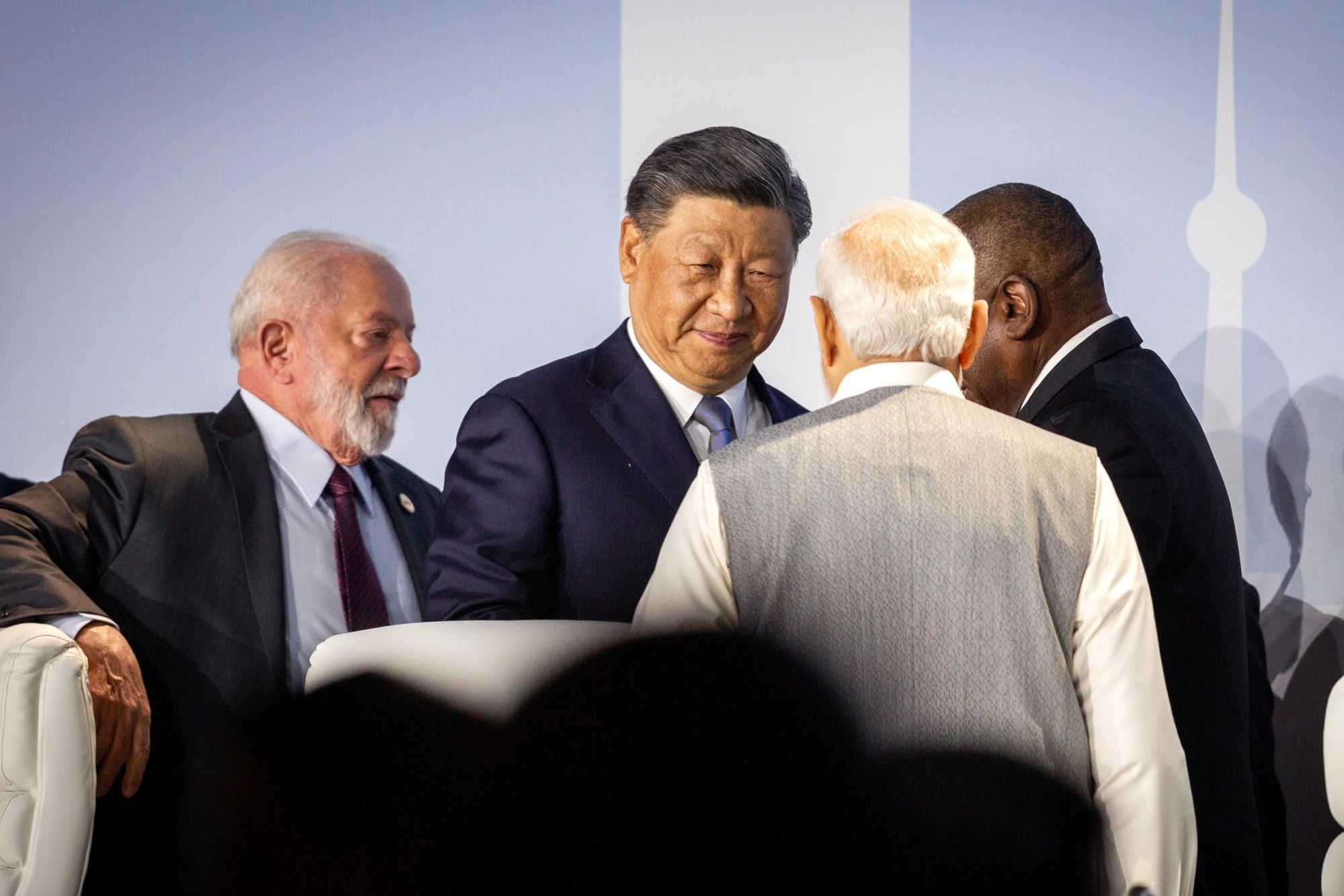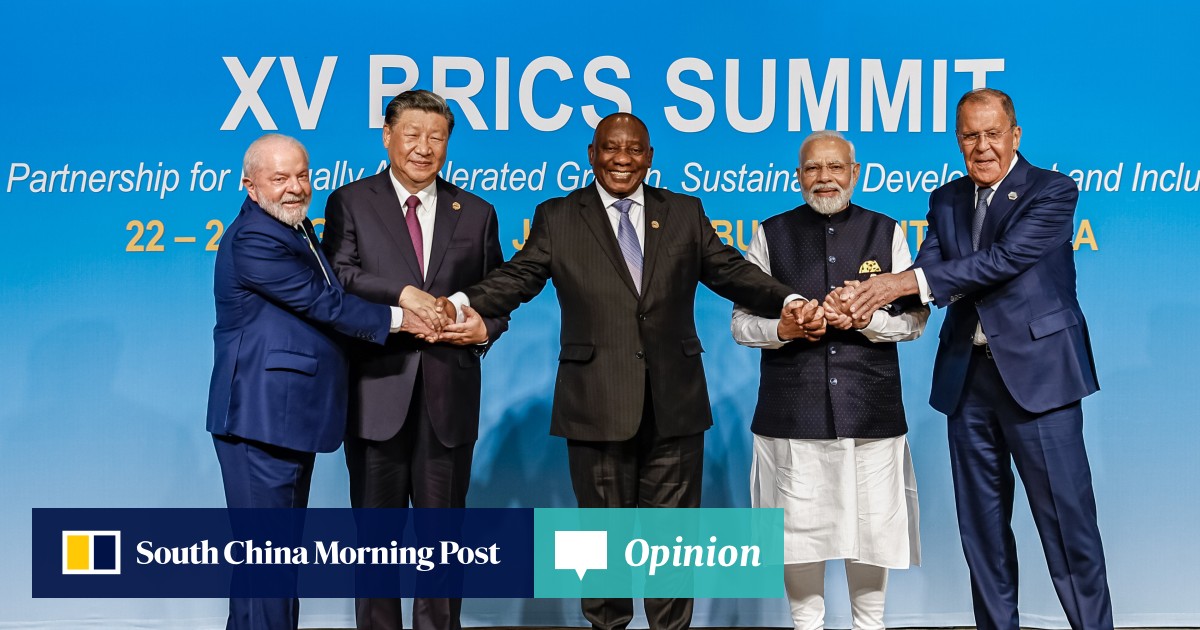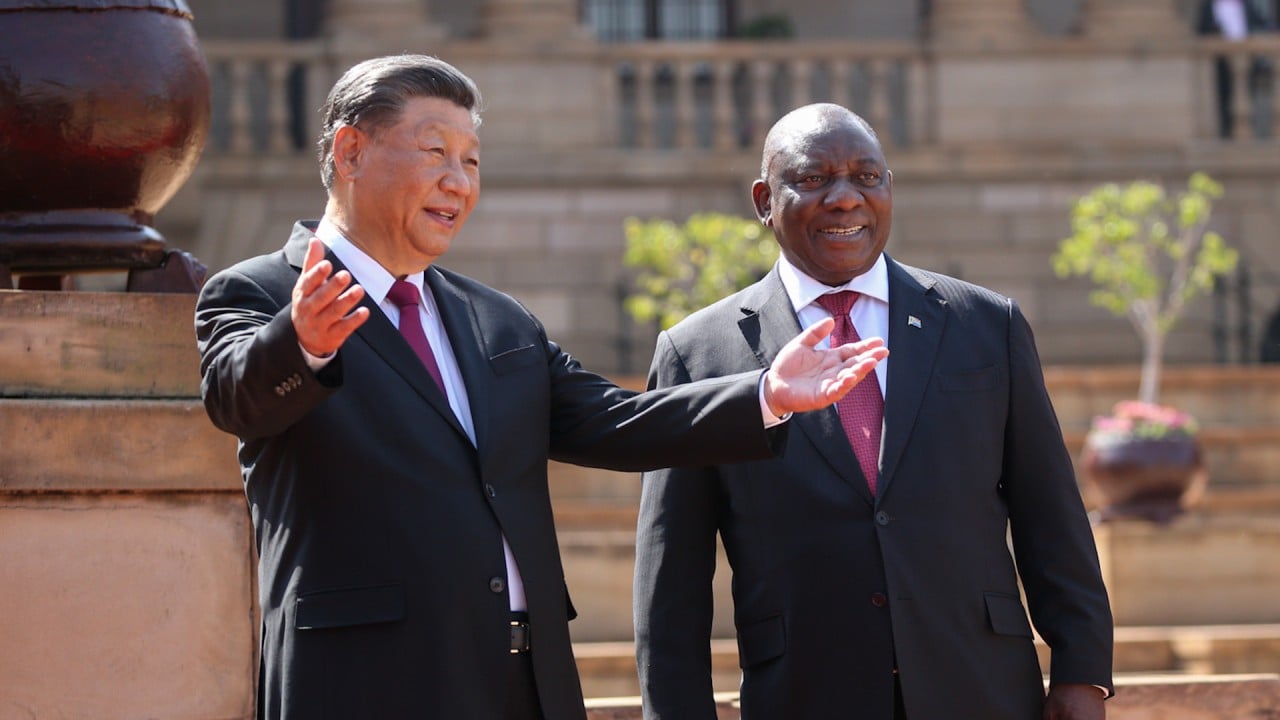Tectonic shifts are leading to the emergence of a more just multipolar world order. The unipolar model, which for centuries served the interests of the so-called “collective West” and fuelled their excessive consumption at the expense of other nations, is receding.
Countries in the West are doing everything to preserve their domination, including imposing self-invented “rules” for the rest of the world to follow, creating divides in the logic of a bloc-based confrontation.

Brics is all about true multilateralism. Through joint efforts, it has created a culture of dialogue based on equality, respect for each other’s development path, consideration of each other’s core interests, and a search for common ground. It offers the world creative initiatives to achieve sustainable development goals, ensure food and energy security for all and healthy global economic growth, and combat climate change, including through a just energy transition.
Brics’ combined gross domestic product in purchasing power parity terms amounts to about one-third of world GDP, exceeding that of the Group of Seven, and will increase further. The collective share of member states in the global economy is US$58.9 trillion. Brics nations account for 36 per cent of the Earth’s land mass, 45 per cent of the world’s population, over 40 per cent of oil production, significant volumes of other resources’ production, and about a quarter of the world’s exports.
As Brics chair, Russia seeks to ensure continuity by carrying on the efforts of its predecessor, South Africa, and other partners to promote cooperation in three key areas: politics and security, economy and finance, and cultural and humanitarian contact.
We are taking steps to preserve Brics traditions and guarantee the integration of new participants. There are about 30 countries wanting to join the Brics family, so we are elaborating on the modalities of a new Brics partner country category and actively using outreach and the Brics-plus dialogue mechanism to interact with non-Brics partners.
Brics members are strengthening coordination on key global issues, including in multilateral forums like the United Nations, G20 and World Trade Organization. Cooperation on anti-terrorism, anti-corruption, anti-drug trafficking and international information security is also being enhanced.
The implementation of the Strategy for Brics Economic Partnership 2025 is being advanced by reinforcing supply chains, developing the digital economy, supporting small and medium-sized businesses, stimulating tourist flows and cooperating in transport and logistics, etc.
Russia seeks to work closely with Brics partners to deepen cooperation in the digital economy, information and communication technologies and innovations, develop digital trade, AI, big data and the Internet of Things and help organise technology start-ups. Other important tracks include preventing mass infectious disease risks, including through the work of the Brics Vaccine Research and Development Centre, advancing nuclear medicine, and eventually establishing a Brics medical association.
The holding of the Youth Forum and Youth Camp, Forum of Young Diplomats, Brics-plus International Municipal Forum and Forum of Sister Cities and Municipalities will help promote cooperation in culture, sports, youth exchanges and civil society. We look forward to the broad participation of athletes in the Brics Games in Russia’s Kazan city later this month.
The culmination of our “watch” will be the Brics summit in Kazan in October. We are confident the meeting will identify key priorities for Brics for the coming years and be another strategic partnership milestone.
Igor Morgulov is the Russian ambassador to China


